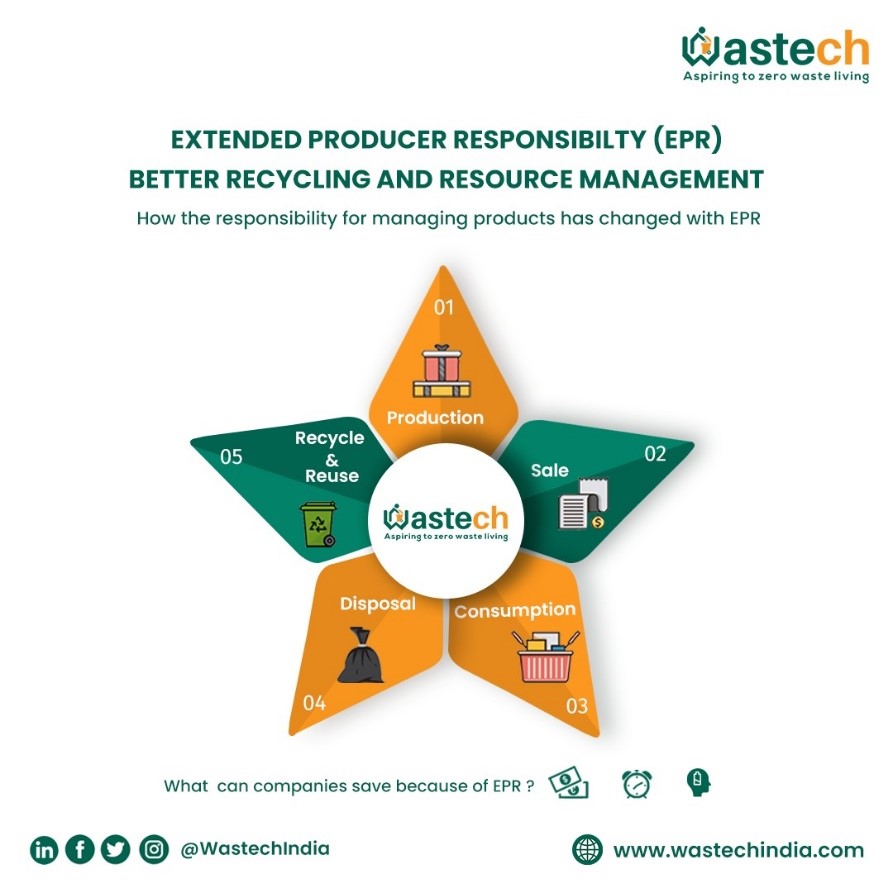According to Central Pollution Control Board, India produces 26000 tons of plastic daily, of which 10000 tons remain uncollected. According to Statista India’s research, in 2011, the amount of plastic waste generated across the country was 56 million metric tons per year. It will reach about 200 million metric tons per year in 2041. Extended producer responsibility is the policy that demands the producers to manage the proper disposal of products they produce once the consumers no longer use those products. Statistics reveal that >95% of the total biscuits, dried processed food items, hair care products, and >85% of dairy products, baked goods, laundry, and skincare sold in India are packaged in plastic.
According to Ian Tiseo, The market value of the plastic packaging industry across India was approximately 15 billion U.S. dollars in the financial year 2010, which was estimated to be around 72 billion U.S. dollars in the financial year 2020. This shows that the packaging industry is the biggest contributor to total plastic waste in India and the FMCG industry is the biggest contributor to the packaging plastic waste generated, thus making extended producer responsibility for plastic waste management a necessary step.

Benefits of EPR
Extended producer responsibility is beneficial economically, environmentally as well as socially. Since the responsibility of disposal is shifting to the industries, the cost of waste management and disposal that was previously borne by the local government bodies and municipalities, which was about Rs 7,366 crore per year is reducing according to Down To Earth infographics. Moreover, the industries are more capable of dealing with the stringent technical requirements for the operation of landfills and incinerators. Decreasing landfill capacity is a key environmental motivator for the extended producer responsibility policy. Since disposal is now a responsibility of the industry, companies try to increase product recyclability and decrease the use of toxic components, making the product more environmentally friendly.
In addition to assigning responsibility for the disposal of products, the extended producer responsibility policy also requires producers to recycle a specified percentage of the collected product by weight or volume. Product recycling reduces the requirement for energy and other resources in producing a product from raw materials. The social benefit is that the companies are getting an enhanced public image as extended producer responsibility is making them produce environmentally friendly products that are recyclable and free of toxic materials, the demand for which is increasing day by day. New global research conducted by the Economist Intelligence Unit (EIU), commissioned by WWF, shows a staggering 71% rise in the popularity of searches for sustainable goods over the past five years, with continuing growth.
Who can you choose to fulfill your Extended Producer Responsibility for Plastic Waste Management?
Some companies cannot deal with the garbage and find it time-consuming and costly. For such companies, Wastech India provides the perfect solution in the form of EPR service, an eco-friendly waste management solution to remove waste from landfills and waterways. The EPR service provided by Wastech includes helping with trash collection, segregation, transportation, and disposal in rural and urban locations across India. With this service, Wastech has successfully disposed of over 10,000 million tons of garbage from various states to date, and the number is rising.